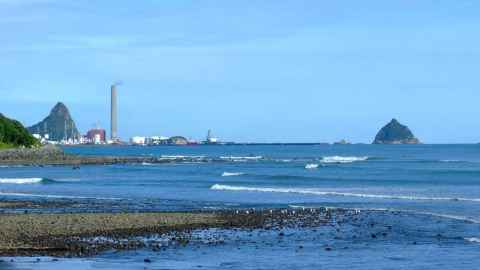The Oil and Gas Bill - we deserve better
16 October 2018
Opinion: The Crown Minerals (Petroleum) Amendment Bill violates all guiding principles on passing legislation - and that’s a problem, writes Dr Edward Willis (Law).

There are no hard and fast rules about how best to pass legislation. There are, however, some guiding principles that almost anyone serious about the legislative process would agree with.
For example:
• There should be enough time for open and considered debate about the relevant policy issues, and citizens should be able to participate in the process in a meaningful way.
• When deciding how to deal with legislation the option that promotes the best final legislative product should usually be adopted.
• Due process should be followed to ensure that the legislative product, and Parliament as an institution, fosters the kind of respect that should be afforded to legislation and legislators.
We are lucky enough to live in a country where these guiding principles are followed most of the time. That is, perhaps, why the Crown Minerals (Petroleum) Amendment Bill stands out: It violates almost every one of those guiding principles, and that’s a problem.
The effect of the Bill, if passed into law, will be to stop future oil and gas exploration in the offshore Taranaki region. The Government has already announced this as its policy, and the proposed legislation will simply give effect to that policy. Before going any further, let me just say that I broadly support the Government’s policy in this area. I think moves away from a fossil fuel economy are important, and to be encouraged. Indeed, a political party campaigning on that type of platform is, all other things being equal, more likely to attract my vote.
So why do I have a problem with the Crown Minerals (Petroleum) Amendment Bill if it gives effect to a policy I support? Well, I support the policy broadly, but I’m not an expert in the area. I don’t know what the side-effects of the proposed law might be, or if the costs of the policy might be significant. In short, I want the broad policy idea to be implemented in the best way possible once all the relevant factors are properly and seriously considered.
I want all legislation that addresses our global responsibilities in a climate‑centric world to be taken seriously so that poor process doesn’t become a reason to question (or reverse) our commitments in this area.
This means I am relying on the judgement of the government MPs that support the Bill to get the balance right. Following good legislative process, like the guiding principles I outlined above, helps ensure that any decision about what the law should be is fully informed and considered. However, the actual legislative process adopted in this case falls well short of the standard required by those principles.
The biggest issue from a process perspective is that the timeframe for select committee consideration of the Bill is exceedingly short. Select committees do very important work scrutinising proposed laws and making recommendations to improve those laws before they are enacted. They achieve this by undertaking their scrutiny outside of the partisan hurly burly of the debating chamber and through close engagement on the relevant issues with the public. This process usually takes about six months to do properly – in the case of the Bill, the select committee has only been given a month.
This has two key effects. First, members of the public have only been given two weeks to make submissions on the Bill. This is a very short timeframe, and only has the effect of reducing the quality (and therefore the helpfulness to the committee) of the submissions received. Second, the committee then only has two weeks to consider the submissions. This is a real problem here because the chair of the relevant committee has stated that she estimates there are over 2,400 submissions to consider. Could you imagine trying to give serious and due consideration to all those submissions and the points they make? This is likely to be impossible to do well, if at all.
The end result of all of this is that the risk of poor legislation is increased drastically, which matters because there are important issues at stake here. Even ignoring the impact on an important regional economy and potentially hundreds of millions of dollars in lost taxes and other revenues, I want all legislation that addresses our global responsibilities in a climate centric world to be taken seriously so that poor process doesn’t become a reason to question (or reverse) our commitments in this area. We should all be demanding better than the inadequate legislative process currently being relied on.
Dr Edward Willis is a lecturer at the University of Auckland’s Faculty of Law. This article reflects the opinion of the author and not the views of the University of Auckland.
Used with permission from Newsroom, Oil and gas bill: We deserve better published on 16 October 2018.